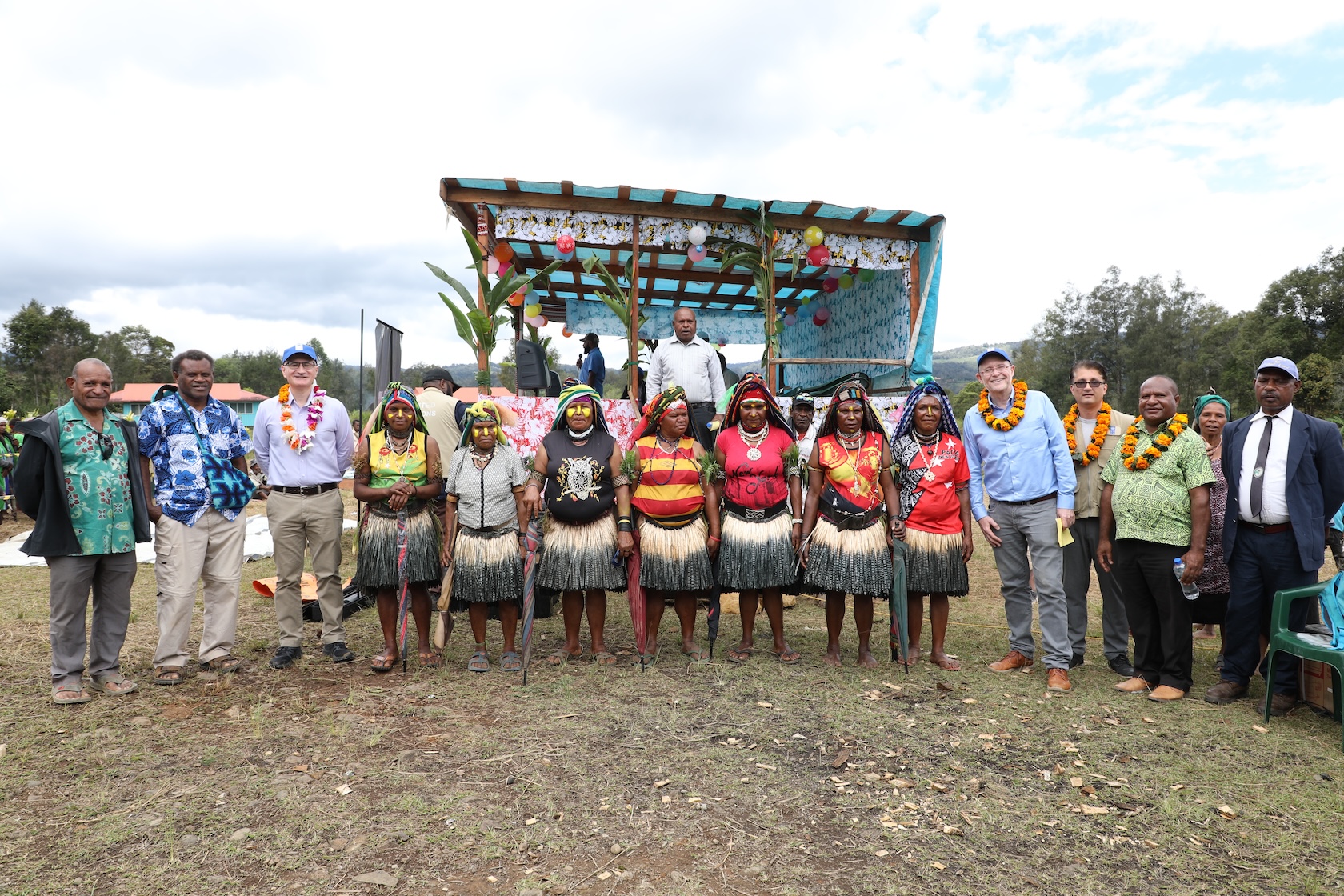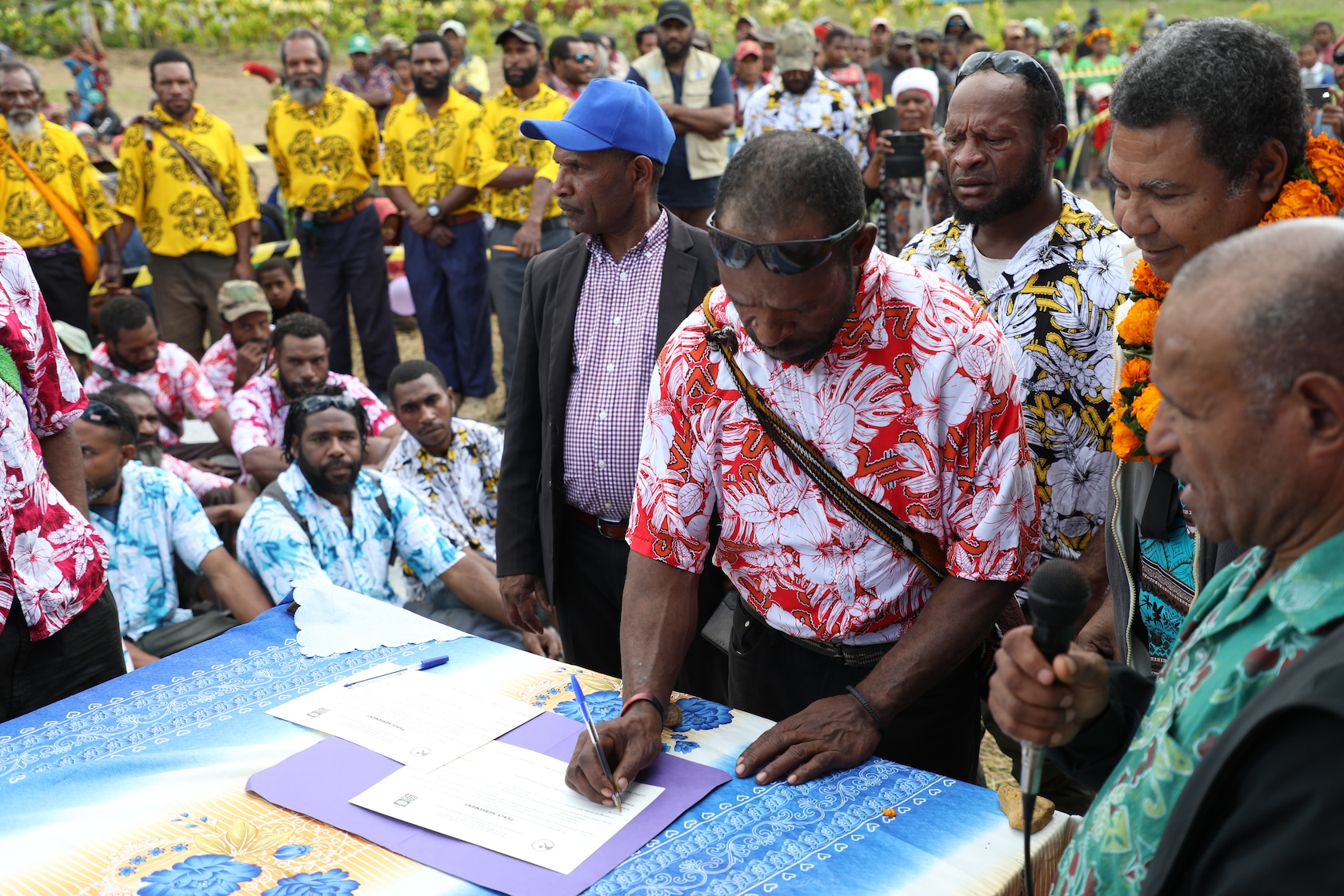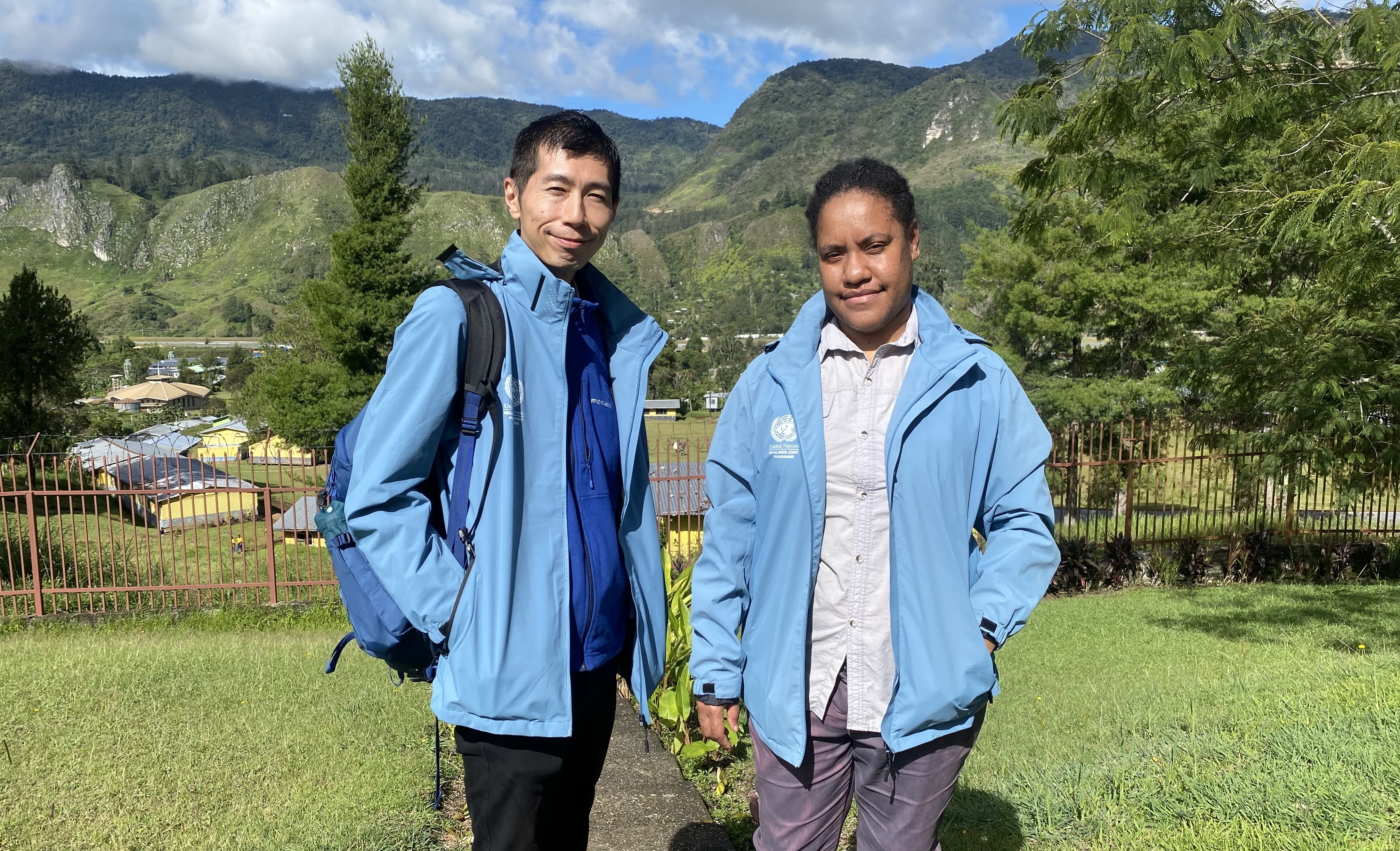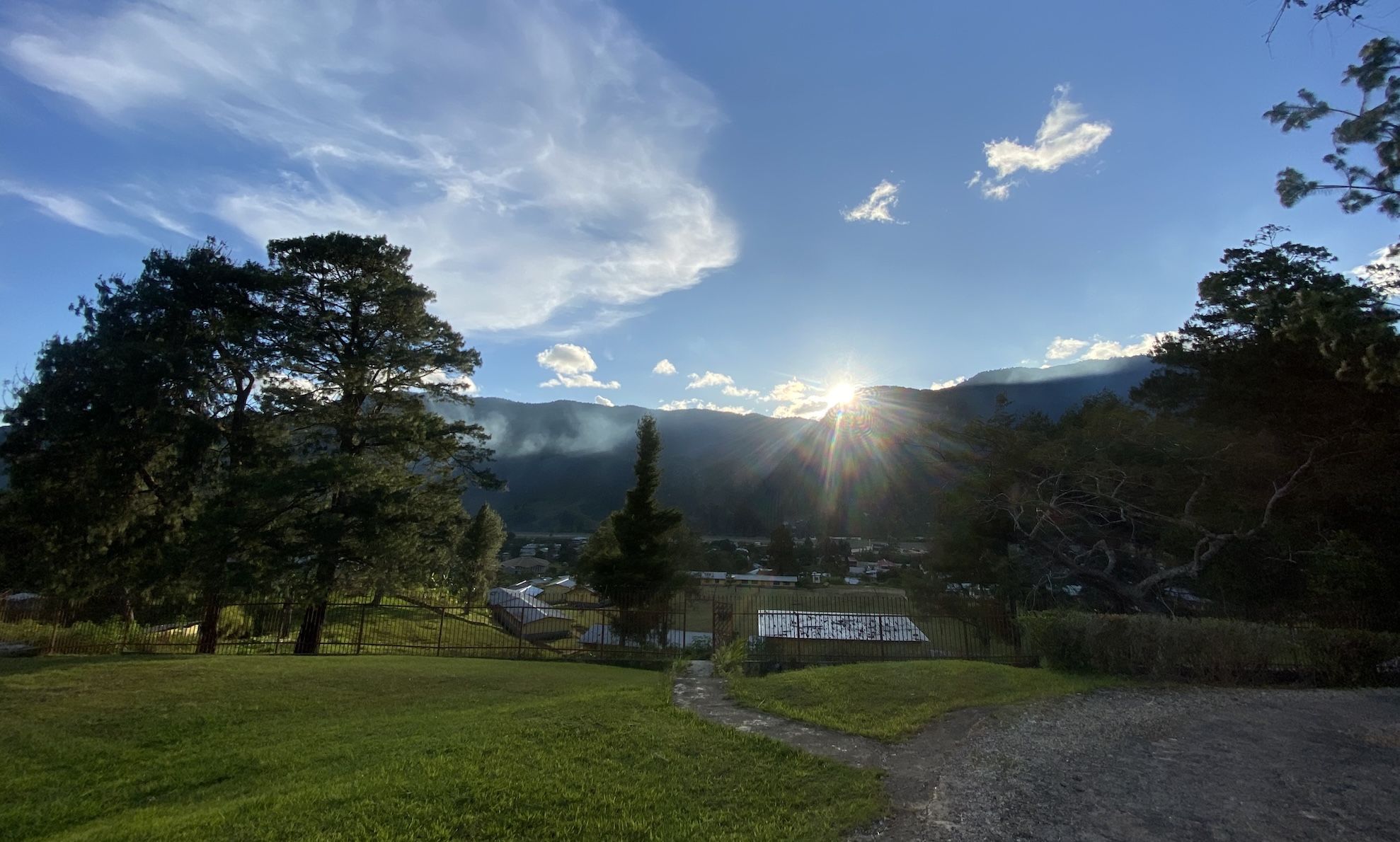The Coordinator of the UN Highlands Joint Programme in Papua New Guinea, Yoshinori Ikeda, provides an overview of UNDP’s efforts to build peace and foster development in the complex context of the Papua New Guinean Highlands. This article was originally released in Japanese in the Newsletter of UNDP Tokyo.
Building foundations for peace in the Highlands of Papua New Guinea
April 8, 2024

UNDP's team attending a peace agreement signing ceremony in Hela Province in 2023
Papua New Guinea is not a country you often hear mentioned in Japanese public discourse. This is surprising when you consider how little it usually takes to spark anybody’s curiosity about this unique island nation located in the Pacific Ocean just north of Australia.
The first word that inevitably comes to mind when I am asked to describe Papua New Guinea is diversity. The country is home to over 800 indigenous languages spoken by over 600 distinct ethnic tribes, which makes it the most linguistically diverse place on the planet. In addition to this remarkable cultural diversity, a stunning 9% of the world’s biodiversity can be found in this country that makes up less than 1% of the world’s land mass.
Mother nature has also blessed Papua New Guinea with abundant natural resources. The country is a major exporter of natural gas, crude oil, gold, copper and cobalt, and thus fulfills the needs of industries and ordinary citizens in countries around the world. This includes Japan, which imports a significant portion of its liquified natural gas from Papua New Guinea.
Considering how much Papua New Guinea has to offer to the world, it is disheartening that the needs of its citizens continue to be unmet on such a major scale. Currently, Papua New Guinea ranks 155th out of 189 countries on UNDP’s Human Development Index. The country continues to face huge social issues and development challenges due to tribal conflicts, low social status of women, unsustainable management of natural resources and inequitable distribution of wealth.
To address these challenges, UNDP is working hard in areas such as peacebuilding and governance, women's empowerment, economic recovery, and climate change to ensure Papua New Guinea gets closer to achieving the Sustainable Development Goals by 2030. We are carrying out a variety of initiatives to contribute to the short-, medium-, and long-term development of the country, including the projects in the Autonomous Region of Bougainville, such as electoral assistance, economic support for communities and green transformation, together with our trusted partners, including Japan.

In September 2023, UNDP and the United Church PNG successfully brokered a peace agreement between four warring clans from Tigibi Community in Hela Province
Since 2023, I have had the privilege of coordinating the UN Highlands Joint Programme in the country’s troubled Highlands region. Under UNDP’s leadership, the programme is being implemented by six UN agencies (UNDP, IOM, FAO, UNFPA, UNICEF and UN Women) in two provinces: Southern Highlands and Hela which have a combined population of about 750,000. The programme originated from emergency assistance that was provided to communities affected by an earthquake in both provinces in 2018. During the emergency response, it became apparent that in addition to the humanitarian assistance, the provinces were in dire need of support in conflict mediation, GBV prevention and response, strengthening of agriculture and livelihoods opportunities, and climate change adaptation.
Based on these needs, the joint programme was launched by the six UN agencies in 2020. The programme relies on two complementing approaches to address the complex challenges the region is facing: the Area Based Programme approach and the Humanitarian-Development-Peace (HDP) Nexus approach. This strategic approach enables us to utilize both top-down and bottom-up methods to address peace, development and humanitarian related issues, which are often deeply interconnected.

Yoshinori Ikeda (left) with his colleague Michealyn Wembi (right).
Take for example the issue of tribal conflicts, which remain common in both of the targeted provinces. Research shows that youth unemployment is a major driver of the problem as frustrated youth decide to become mercenaries due to having no prospects and wanting status within their communities. To address the issue, it would be imperative to increase decent livelihood opportunities for youth in the community. However, an unstable and unsafe business environment does not attract outside investors or incentivize local entrepreneurs to take risks. Hence, unless both the peace and development issues are addressed simultaneously, it is unlikely that the fundamental issue can be eradicated.
In the past, a similar strategy was successfully utilized to address the challenges of the Rohingya crisis in Myanmar, where I personally worked from 2018 to 2021. With the UN Highlands Joint Programme just having reached the end of the first phase of its implementation, we are also receiving extremely positive feedback from the communities we are working with about this approach. Local people feel they have had a chance to influence what issues the initiatives of the programme are tackling and they are hopeful that their complex needs will finally be addressed in a more holistic manner as the programme enters the second phase of its implementation this year.

UNDP's field office in Papua New Guinea's Highlands region is located in Mendi, Southern Highlands Province
In my view, the key to our efforts being successful can be captured by UN’s motto ‘Stay and Deliver’. In the words of our Resident Representative, Mr. Nicholas Booth: “We must have a strong presence in the communities we support to ensure the work we do is truly impactful. Especially in the context of the Papua New Guinean Highlands, the situation in the field can undergo rapid changes, and unless we are able to rapidly adapt our approach, it is unlikely that the support we provide will stay up-to-date and truly meet the most crucial needs of the people.”
Committing to this often means that the work will not be easy. I often work for days with limited access to basic goods, electricity, water while navigating a vast array of security challenges. But this is the price that I am happy to pay to get understand the essence of the problems we are tackling and to ensure that we are able to use our limited budget, time and capacity in a manner that truly makes a difference for the people we serve.
Read this article in Japanese on UNDP Tokyo's website here.

 Locations
Locations